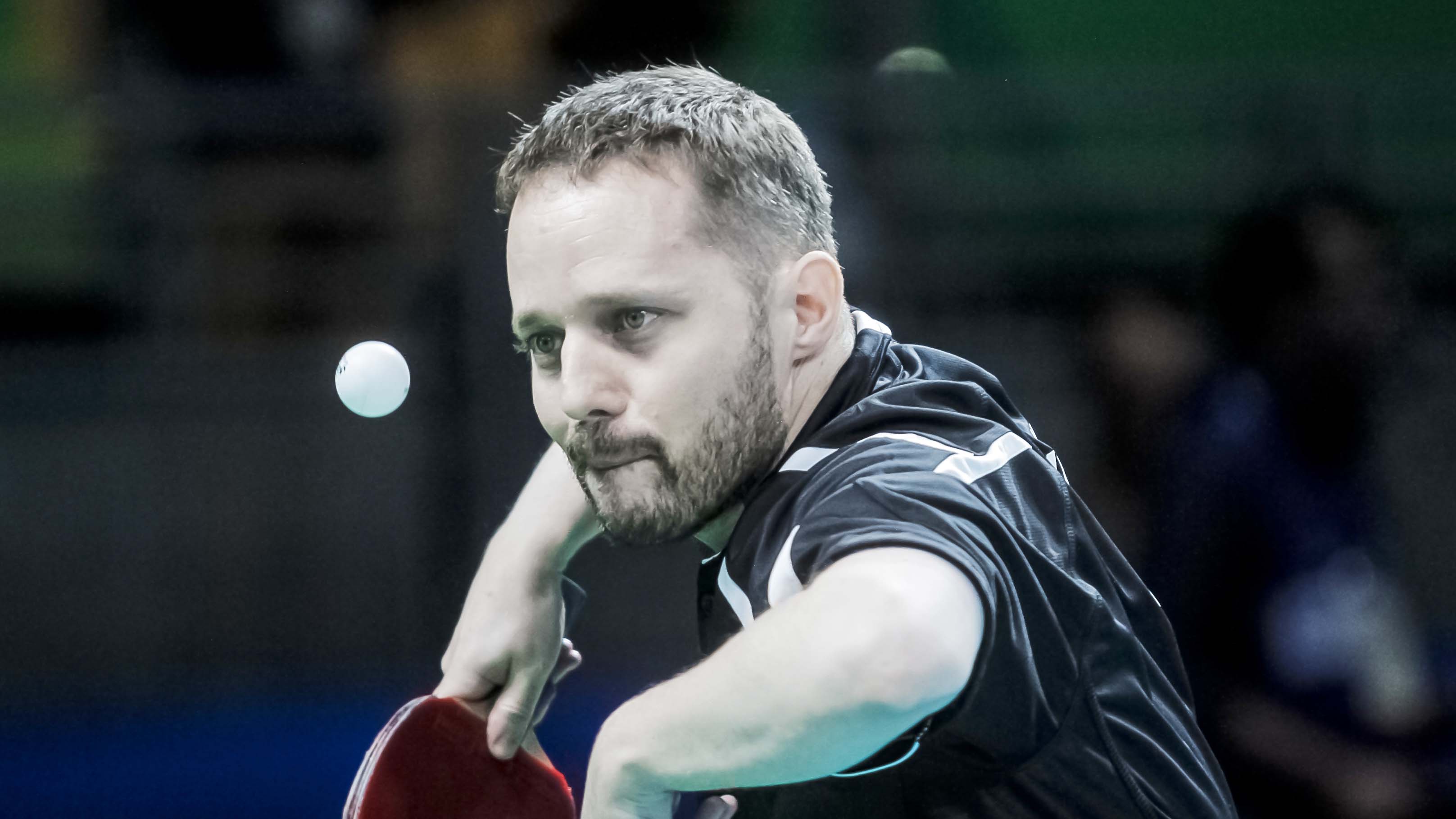Tahl Leibovitz is still hungry. Now 44, the highly decorated athlete could certainly walk off into the sunset without a regret. That's just not his style. Born in New York, Leibovitz had an unstable home life. His parents, afflicted with mental illness and drug problems, kicked him out on the street when he was 13. As a homeless teen and middle school dropout, Leibovitz had to steal food to survive. With nowhere to sleep, he rode the trains all night. As if all that were not hard enough, Leibovitz was beginning to grow bone tumors, a condition known as osteochondroma. Although noncancerous, the painful tumors would severely limit his mobility. Although he did not know it at the time, his life began to turn around one day when he wandered into the South Queens Boys and Girls Club. There, he was drawn to the hypnotic sound of table tennis. Soon, he would spend 6-7 hours a day playing there, bouncing the ball against a wall when there was no human competition. Soon, Tahl's talents caught the attention of para table tennis coach Chris Lehman. "He [Lehman] convinced me to play for the U.S. Paralympic Team," remembers Leibovitz. "I never really thought of myself as disabled and I was a bit reluctant at first. However, over the years my physical condition deteriorated quite a bit. I slowly began to realize that I did have physical challenges.” In a few short years, Leibovitz would become the men's Class 7 gold medalist at the 1996 Paralympics in Atlanta. As he found structure and discipline in his life through table tennis, Leibovitz began to consider his long-term goals. The first step was to get his GED. Next, he enrolled in Queens College, double-majoring in philosophy and sociology before earning a master's degree in urban affairs. Leibovitz flourished in academia. He would go on to earn a second master's in social work, leading to his current career as a drug and alcohol counselor. While he underwent his remarkable metamorphosis from at-risk youth to life-changing mentor and healer, Leibovitz remained a force to be reckoned with on the table. Beginning at the 2003 Para Pan American Games in Brasilia, he has won gold in his division in each of the ensuing quadrennial contests. Now, he and the rest of the US para team are in the thick of in the Lima 2019 Para Pan American Games. After sweeping his qualifying group, each match a mirror of his overall 3-0 record, he now finds himself in Saturday's Class 9 semifinals, facing Lucas Carvalho of Brazil at 4:20 pm local time. The winner will play in the finals two hours later, facing whoever emerges between Brazil's Ramon Da Silva and Mexico's Miguel Vazquez. With four gold medals in a row under his belt, Leibovitz is as hungry as ever for number five.
More at USATT
